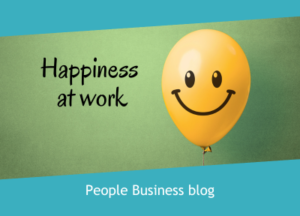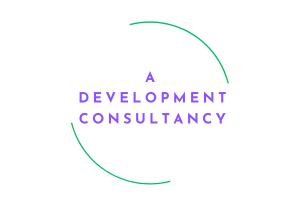Why happiness at work matters now more than ever in 2025

As we mark International Week of Happiness at Work, it’s a good moment to pause and ask: What does happiness at work really mean—and why should we care?
The latest Gallup Happiness at Work Report (2025) offers some eye-opening insights. It’s not just about feeling good at your desk. Happiness at work is directly linked to how well people perform, how long they stay and how much they contribute to their teams and organisations.
In short: happy employees make better workplaces. And in today’s fast-changing world, that matters more than ever.
The cost of unhappiness
Let’s start with the numbers. Gallup estimates that low employee engagement costs the global economy $8.9 trillion a year. That’s nearly 9% of global GDP lost to stress, burnout and people simply not feeling connected to their work.
In the UK, only 10% of employees say they’re engaged at work—one of the lowest rates in Europe. When people aren’t engaged, they’re less productive, more likely to leave and more likely to struggle with wellbeing.
What makes work feel good in 2025?
The good news is that we know what helps. The 2025 report highlights a few key ingredients for happiness at work:
-
Flexibility
People want more control over how and where they work. In fact, 82% of employees say remote or hybrid options make them happier. Freelancers and contractors often report higher satisfaction than traditional employees, thanks to the freedom to shape their own schedules.
-
Supportive managers
Managers play a huge role in how people feel at work. They account for 70% of the difference in team engagement. When managers lead with empathy, give clear feedback, and support growth, teams thrive. But only 44% of managers have had proper training, which means many are struggling to support their teams effectively. If you’re interested in learning more about the research we’ve done into how managers’ behaviour impacts employees and our psychometric tool The Good Boss Questionnaire, contact us.
-
Connection and belonging
Even in remote or hybrid setups, people still crave connection. Workers who feel a sense of belonging are 56% more productive and 50% less likely to leave. Whether it’s through team lunches, shared goals, or just feeling heard, connection matters.
-
Purpose and progress
People want to know their work means something. When employees feel their role contributes to a bigger purpose, they’re more motivated and satisfied. Growth opportunities – whether through learning, feedback, or new challenges – also play a big part.
The happiness gap
Despite all this, many workers still aren’t feeling great. Global engagement has dipped to 21%, and 41% of employees report feeling stressed every day. Loneliness is on the rise, especially among remote teams, and more than half of workers are actively or passively looking for new jobs.
Clearly, there’s a gap between what people need and what they’re getting. And that gap is costing organisations more than they realise.
Culture counts
Workplace happiness isn’t just about perks or pay. It’s about culture—how people are treated, how they’re supported, and how they’re included.
Different cultures and generations value different things. Gen Z and Millennials often prioritise purpose, flexibility, and inclusion. Older generations may focus more on stability and recognition. But across the board, everyone wants to feel valued.
Five ways to boost happiness at work
So, what can organisations do to create happier workplaces? Here are five practical steps:
-
Train your managers
Give managers and leaders the tools to lead with empathy, clarity and confidence. Great managers build trust, support growth and help people feel safe to speak up.
-
Offer flexibility
Let people choose how they work best. Whether it’s remote, hybrid or flexible hours, autonomy boosts wellbeing and performance.
-
Build connection
Create space for real interaction – team check-ins, shared projects, and informal chats. Connection doesn’t require constant presence, but it does need intention.
-
Align work with purpose
Help employees see how their work fits into the bigger picture. Purpose-driven organisations enjoy higher engagement and stronger loyalty.
-
Listen and learn
Use surveys (we can run Pulse surveys, employee engagement surveys and more), feedback tools and regular conversations to understand what’s working – and what’s not. Then act on what you hear.
A week to reflect and reset
International Week of Happiness at Work isn’t just a celebration—it’s a chance to reflect and ask ourselves: Are we creating environments where people can thrive? Are we listening, supporting, and growing together?
When we prioritise happiness, we don’t just make work better—we make life better. And that’s something worth working toward.
If you would like to talk to one of our consultants about how we could help with any of the points above, please get in touch.




